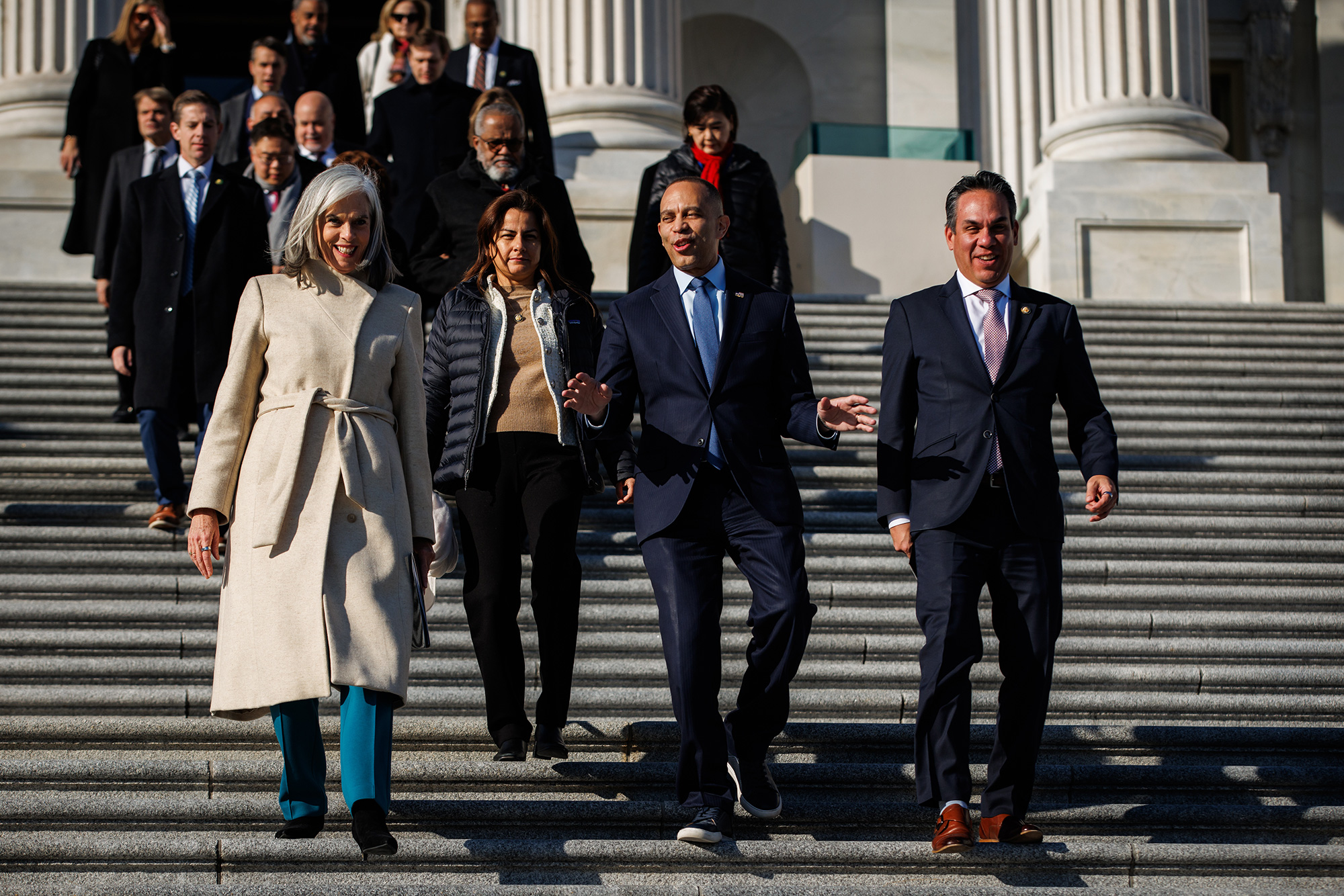How countries are responding to Trump’s demands
Last week, President Trump announced sweeping new tariffs – taxes on stuff imported from other countries – that are expected to upend the global economic order, for better or for worse.
President Trump announced a baseline tariff of 10 percent on everything, up from the 3.4 percent U.S. importers were paying before this administration. 60 countries will be hit with even higher tariffs, which the White House says is payback for having high tariffs and other trade barriers against American goods.
Are tariffs a negotiating tactic?
There are conflicting reports about the strategy behind these tariffs. Commerce Secretary Howard Lutnick, for example, said the tariffs are here to stay and “this is not a negotiation.”
For Secretary Lutnick and other administration officials, these tariffs are being pursued for their own sake. Tariff supporters argue these taxes are necessary to rebuild America’s manufacturing sector, reduce dependence on foreign supply chains, punish bad actors like China, and generate revenue for the federal government.
But President Trump has been less clear. He said “The tariffs give us great power to negotiate. They always have,” hinting that he wants to make a deal. But at the same time, President Trump posted on Truth Social, “My policies will never change.”
The Global Response
Countries around the world nonetheless see the Trump tariffs as the opening move in a comprehensive trade deal renegotiation. According to White House National Economic Council Director Kevin Hassett, “more than 50 countries have reached out to the President” to strike a deal on tariffs.
Some countries are already lowering or removing their tariffs on American goods, hoping the U.S. will do the same:
- Israel canceled “tariffs on all imports from the United States”
- Vietnam “offered to reduce tariffs on U.S. imports to zero”
- Zimbabwe “will suspend tariffs on goods imported from the U.S.”
- Taiwan “offered zero tariffs as the basis for talks with the U.S.”
- Cambodia is “offering to slash tariffs on 19 categories of imported U.S. goods from a maximum levy of 35% to 5%.”
- The European Union “offered zero-for-zero tariffs for industrial goods.”
But will these moves be enough to please Washington? It’s not that simple. Tariffs are just one part of the story of global trade. “Non-tariff barriers” – rules and regulations that affect what gets imported, exported, and who benefits – also get in the way of free trade.
RELATED: Free Trade? Not Quite.
In Vietnam’s case, for example, White House trade advisor Peter Navarro said their offer to reduce tariffs “means nothing to us because it’s the nontariff cheating that matters.”
The Axis of (Tariff) Resistance
While many countries are rushing to the negotiating table, others are digging in.
China announced that it is linking up with America’s allies Japan and South Korea to jointly respond to President Trump’s tariffs, although Japan and South Korea downplayed that reporting. Considering the fraught history of these three nations, their anti-tariff partnership would represent a major shift in international relations.
Whether other countries join them or not, China has already announced “a 34 percent tariff on American imports.” President Trump, in turn, threatened to re-raise tariffs against China by 50 percent. If that’s added on top of the 20 percent tariffs already in effect, imports from China could be subject to a whopping 70 percent tariff.
Canada is also striking back, taking aim at the American auto industry. Our neighbors to the north will now impose “25 percent tariffs on non-CUSMA compliant vehicles imported into Canada from the United States.”
Is this resistance futile? Will President Trump be willing to make a deal? Will other countries be ready to give Trump what he wants? What comes next may depend less on the tariffs themselves and more on how the world chooses to respond.
Related
Peyton Lofton
Peyton Lofton is Senior Policy Analyst at No Labels and has spent his career writing for the common sense majority. His work has appeared in the Washington Examiner, RealClearPolicy, and the South Florida Sun Sentinel. Peyton holds a degree in political science from Tulane University.




